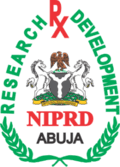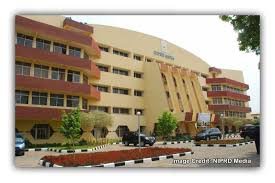“NIPRD, a continental giant research institute, has moved from obscurity to prominence, emerging in an era where multiple stakeholders propose strategies for prioritizing sustainable local vaccine manufacturing in Nigeria. This development has now secured an €18 million grant for vaccine research and local manufacturing catalysis from the European Union. “
John Nwokocha in Abuja, Nigeria, writes on the substantially groundbreaking achievements of a research institute under the impactful leadership of Obi Adigwe, Ph.D.
The staff of the National Institute For Pharmaceutical Research And Development (NIPRD) on Thursday, April 3, announced a 7-day warning strike, alleging unpaid allowance, among other concerns as the reason for their planned protest. The NIPRD workers union led by their executives threatened a showdown at the expiration of the ultimatum if their concerns were not addressed.
Although the Nigerian Labour Act 2004, guarantees the workers the right to make legitimate demands, the Act is nevertheless unambiguous about the procedures for passing their message to the authorities.

In registering their grievances against the management the workers should not resort to the use of foul language or insult their leaders and management. Unfortunately, this was not the case when the NIPRD agitated workers organized their warning strike in Abuja. Rather it was a free reign of uncouth words and insults on the institute’s leadership, making it look like there are personal scores to settle with the leadership. Embarking on an obvious smear campaign against the established leadership projected them to be on a mission to undermine the institute. This is already raising controversies. Because fanning the anti-establishment sentiments is misguided. Those in professional and executive roles and positions who should know and still went ahead and incited the anti-Adigwe sentiment betrayed the institute’s envious track record of achievements.
The uninterrupted workers-management cordial relationship being one of the remarkable feats is not a happenstance.
The leadership of NIPRD deserves commendations for the rare management stability that guaranteed the prevailing safe working environment and freedom from any form of discrimination being enjoyed by the workers. Only a leadership that prioritizes its workers’ welfare can create a conducive environment such as the one existing at NIPRD.

The union executives ought to know that there are proper channels for registering grievances and pressing for rights.
Overheating the polity and calling for ethnic cleansing and profiling is not one of the channels if reason should prevail. Sentiments apart, the workers’ leadership failure to toe the line as seen in the video circulated on social media in which they condescended to name calling with uncivilized phrases like “dictatorial and absentee leadership, disregard for professionals”, is suspect as well as dishonourable.
They are intent on drawing the attention of the Mr President to NIPRD after they had forwarded several petitions to the Ministry of Labour and Productivity, and the Presidency. So far, the presidency has remained neutral, refusing to be dragged unnecessarily into unhealthy office politics. Because it has not found fault in the leadership of the institute.
Now, NIPRD is the cynosure of all eyes with the workers warning strike. Many who had little knowledge about the institute are keen on finding faults, and getting details about how the organisation runs.
The Era of Accelerated Developments and Inspiration
It has become pertinent to put the record straight. By now it is market secret that NIPRD was grounded before Dr Obi Adigwe came on board as the substantive Director General (DG). The appointment of Adigwe as the DG of the research institute has been described as a wise decision by the government. A quiet reformer, Adigwe’s leadership has witnessed countless significant strides. Any discerning mind would acknowledge without hesitations that NIPRD shot into global heights under Adigwe as the DG who works selflessly and relentlessly to position the institute in a world-class status.
The significant strides have reflected in a paradigm shift in NIPRD.
It is not always common to find someone who renders total diligence in public service where corruption and greed dominate altruistic commitment. Although they are few, Adigwe is one of them.
Worthy of mention among these accelerated developments under Adigwe’s impactful leadership, is that NIPRD has emerged as a regional leader in developing evidence-based interventions for healthcare.
Some of the most outstanding breakthroughs at NIPRD are in the areas of sickle cell anemia, malaria, diabetes, fungal infection, and peptic ulcer. It is safe to emphasize that Adigwe’s leadership marks the beginning of a new era in NIPRD, rooted in professionalism, equity, efficient distribution of resources, and fairness to all.
Achieving Ambitious Goals by Fostering Innovation and Collaboration
It is now a well-known fact that NIPRISAN, a phytomedicine developed by the Institute is world renowned for the management of sickle cell.
The Institute has reformed its strategic research and development approach by developing projects which are aimed at improving access to health, whilst also accelerating National socio-economic development, especially in the areas of job creation, capacity building, and knowledge transfer.
This is in line with the current government’s focus on local content development and value chain creation.
NIPRD emerged as the first Institute of its kind to achieve both the ISO 17025 and ISO 9001 certifications and has leveraged this expertise to collaborate with international partners in many groundbreaking areas.
The Institute received a 200m Yen Grant from the Japanese Government to set up the Nanotechnology Centre.
Other grants include the sum of $400,000 awarded by AFREXIM Bank for Active Pharmaceutical Ingredients (APIs) pilot production and training and TETFund’s mega research grant worth 250m Naira for drug and phytomedicines development.
NIPRD alongside partner agencies successfully undertook a Phase IIIb study to evaluate the safety and Immunogenicity of fractional doses of COVID-19 vaccines among Nigerian adults.
This ground-breaking study demonstrated that dose-sparing can be adopted to facilitate wider coverage of Nigerians for adequate protection against the disease.
Recently, NIPRD led the initiative to develop a National Plan for Vaccine Research, the first such empirical document in Nigeria.
The plan which was developed with input from multi-level stakeholders, proposes strategies for prioritization to achieve sustainable local manufacturing of vaccines in Nigeria. This has now underpinned an €18m Grant for vaccine research and local manufacturing catalysis, by the European Union.
Innovative Maintenance Principle
Before the resumption of the administration, close to twenty buildings of the nearly 40-year-old Institute lay in ruins with rodents and reptiles routinely attacking staff. All dilapidated structures have been renovated and new buildings established.
Close to two hundred new pieces of world-class equipment have been similarly secured in the same period. From just one institutional vehicle at the onset of the Administration, NIPRD today boasts of twenty operational vehicles for departmental, research, and capacity-building activities.
Institutionally, widespread capacity has been developed across all staff levels and cadres.
Under the administration, every single staff member has received a laptop and IT device to enable productivity and efficiency.
Strategic Staff Motivation/Capacity Boosting
Every single member of staff has also received world-class training, including numerous international conferences and workshops. In the last two quarters alone, two professors, three deputy directors, and ten staff between grade levels 9 – 12 have enjoyed international trips to Asia and Europe.
Harnessing statutory roles and well-established ties, NIPRD maximizes its convening power to engage stakeholders in healthcare, pharma manufacturing, academia, industry, and across multidisciplinary sectors. This approach imbibes widespread intervention ownership and also guarantees sustainability. During the COVID-19 pandemic, the Institute assembled a multidisciplinary team of Professors/Vice Chancellors to form Nigeria’s first National Scientific Advisory Committee (NSAC).
Out-of-the-Box Thinking
The body developed a national reference document for verification and validation of locally-produced phytomedicines to ensure that citizens’ safety was paramount in the articulation of control measure for the pandemic. This document was distributed widely and has become the cornerstone for evidence-based analysis in the sector. NIPRD has considerable experience in ensuring that interventions led by the Institute are relevant to the whole of Africa.
Adigwe led the Institute in providing the world’s first categorical report on the Madagascar Covid-Organics Preparation, and given the impact of the findings on lives and resources, now routinely collaborates with countries in every region of the Continent.
His impactful leadership has transformed the institute
Dr Adigwe’s design of the Contextual Processing Protocol (CPP) has initiated a nationwide phytomedicine training program. The concept of designing interventions aimed at enhancing practitioners’ capacities within their practice locations proved immensely successful since it also provided a platform for direct engagement with key stakeholders such as State Governors, Commissioners of Health, the Academia and Investors. So far, using this model, the Institute has successfully trained thousands of traditional medicine practitioners (TMPs) in many states of the federation.
The success achieved by the Institute using this innovative and revolutionary approach in bringing phytomedicine research and development to grassroots practitioners has now received the attention of the World Health Organization (WHO).
In conclusion, a popular saying goes: a visionary leader does not change a winning team.
Unarguably, the winning team will strive to sustain the trophy by continuously fostering innovations and strategic thinking to achieve greater ambitious goals. Reason and wisdom should prevail.



